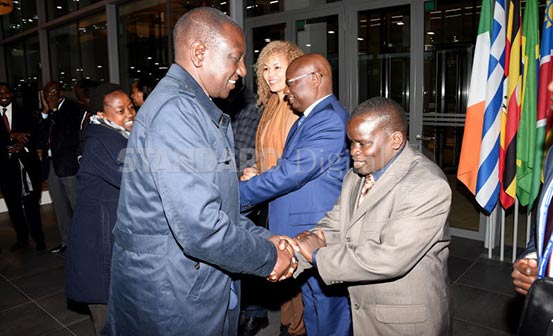×
The Standard e-Paper
Fearless, Trusted News

Deputy President William Ruto and Joshua arap Sang are not required in court on April 5 for a ruling on their application to have their case dismissed.
The International Criminal Court (ICC) exempted them from being physically present when the ruling will be read on whether or not they have a case to answer in relation to the 2007-2008 polls chaos.